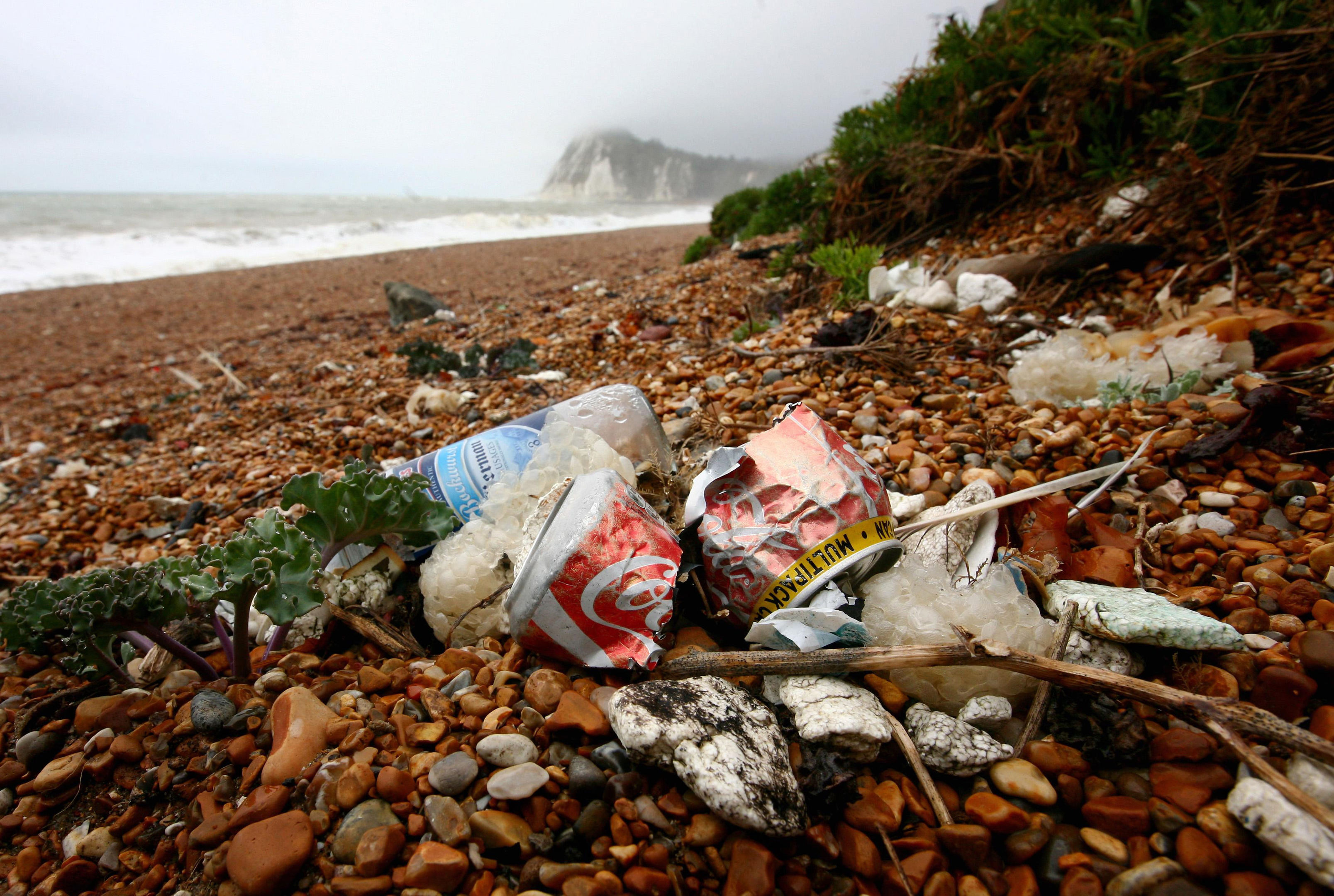
THE UK cannot beach clean its way out of a litter crisis, according to environmental campaigners.
The Marine Conservation Society said there is a rising trend in the amount of plastic litter being washed up on the UK’s shores.
It revealed that 15,000 people took part in its Great British Beach Clean event in September – double the number of last year – with nearly 500 beaches cleaned.
The charity said 8,550 kilogrammes of litter was picked up across the country with volunteers collecting an average of 600 items on every 100 metres of beach surveyed.
On average, for every 100 metres of the UK coastline there were:
- nearly 189 plastic/polystyrene pieces
- 38 plastic caps/lids
- 21 cotton bud sticks
- 12 wet wipes
- six drinks bottles and cans
- five plastic bags
- three plastic/polystyrene cups
Although there were more volunteers and events, the amount of litter collected dropped.
Lizzie Prior, from the charity, said: “In 2017 our volunteers picked up an average of 717 items of litter for every 100 metres they cleaned and surveyed. This year that figure dropped by 16%.
“But it’s almost certainly a false dawn. UK governments must certainly not think the crisis is over and slow down or shelve any much-needed litter legislation.
“Litter levels fluctuate year on year and for the last decade have risen by over 15%.
“The Great British Beach Clean is just a snapshot of the UK litter story and must be seen in the context of the broader trending picture. There’s more litter in our seas than there has ever been.”
Miss Prior said beach cleaning was now seen as trendy with more people joining in.
“Picking up litter at the beach is now bang on trend. Social media feeds are filled with people’s pictures of what they find at the coast, on rivers and at sea,” she said.
“Finally, beach cleaning is cool and mainstream. So, we may have found less litter this year because so many more people are cleaning beaches whenever and wherever they can.”
The charity said programmes such as the BBC’s Blue Planet II series, the Drowning In Plastic documentary and Sky’s Ocean Rescue campaign had highlighted the damage to the seas of a throwaway culture.
Miss Prior added: “It feels that we are on the precipice of being able to make positive changes when it comes to our plastic addiction.
“We’ve been blown away by the number of people who are cleaning the UK’s beaches either at organised events like the Great British Beach Clean or just at random trips to the beach.
“Disappointingly, the recent Budget only included one potential measure for reducing plastic usage, despite the huge response to the recent call for evidence.
“It’s more important than ever that we make governments aware of what a colossal mistake dragging their feet on bans, taxes and incentives on single-use plastic will be for our seas.”

Enjoy the convenience of having The Sunday Post delivered as a digital ePaper straight to your smartphone, tablet or computer.
Subscribe for only £5.49 a month and enjoy all the benefits of the printed paper as a digital replica.
Subscribe